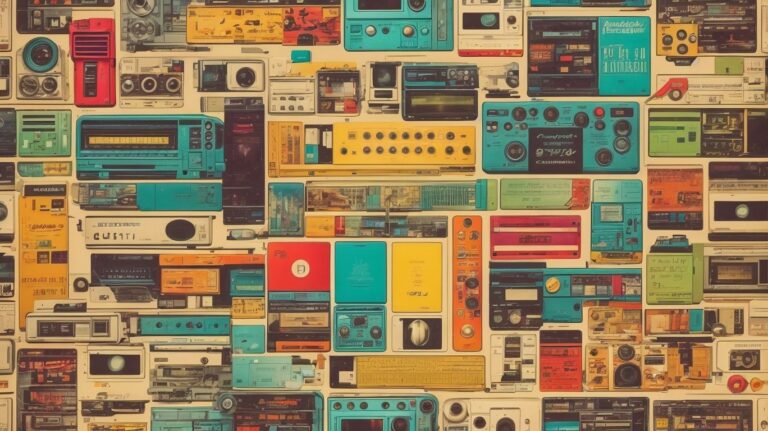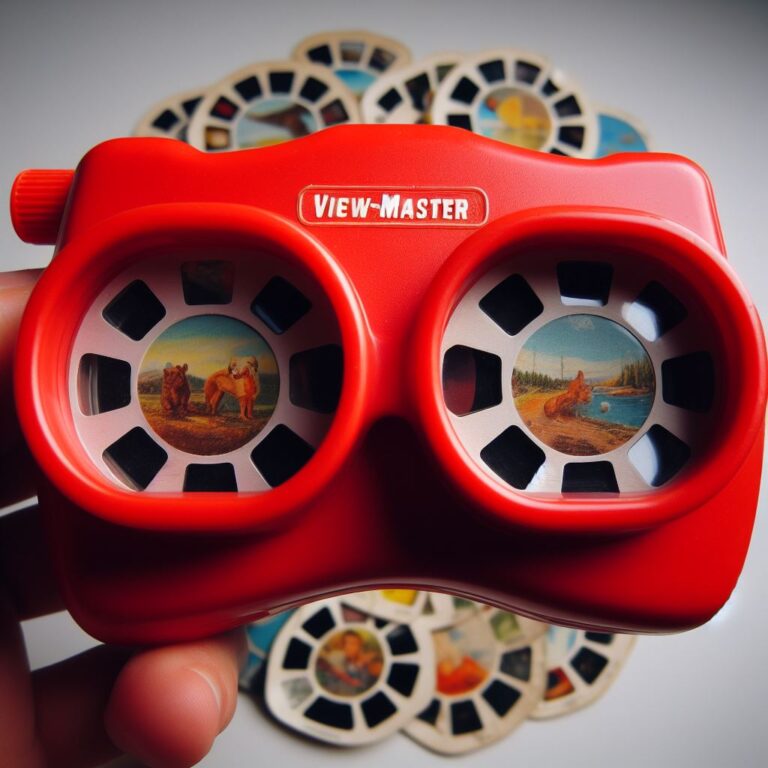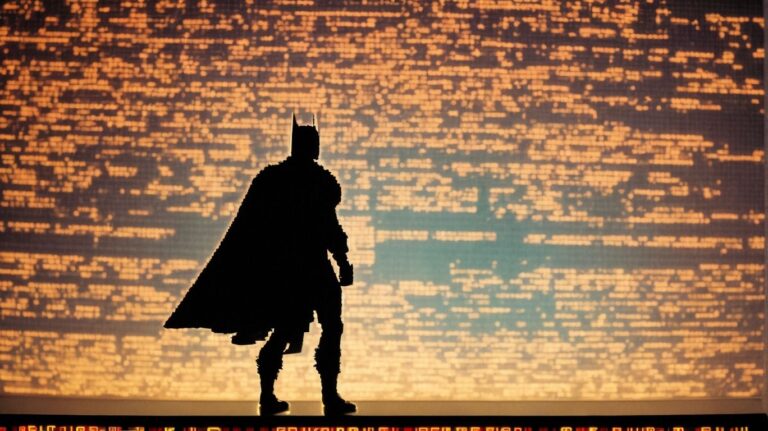What is a Nerd? Exploring the History and Evolution of the Term
Once an insult, “nerd” has become a badge of honor. This article takes us into the history of the nerd identity. It started in the 1950s as a put-down for socially awkward people. But now, it refers to a culture with a passion for knowledge, tech and unique interests.
Technology and society changed; nerds went from outcasts to Silicon Valley leaders. Popular culture helped redefine the image of nerds. Think Steve Jobs and “The Social Network“. Society now values the expertise and innovation of nerds.
“Nerd” is not limited to one field or interest. Science nerds, gaming nerds, history nerds – each with their own knowledge and quirkiness. This diversity allows for growth and collaboration between individuals.
This progression of the term “nerd” shows how views on intelligence and passion have changed. Labels can be reclaimed, offering empowerment to those who share the same nerd disposition. Dive into this article and understand what it means to be a nerd.
Historical Background
The term “nerd” originated in the 1950s with Dr. Seuss’s book “If I Ran the Zoo”. In the 70s and 80s it was used to describe intelligent, passionate people who studied hard and didn’t fit in with societal norms. Today, it’s seen as a badge of honor, representing expertise and enthusiasm in niche interests.
Nerdom has grown to include many subcultures and hobbies. Comic book geeks, gamers, computer programmers, and sci-fi fans all get the label. This has allowed for a more inclusive definition of nerdiness – anyone with deep knowledge or skills in a certain field.
Nerds have found acceptance in the internet age. With online spaces devoted to specific interests, they can share information, discuss niche topics, and form meaningful connections. Even celebrities are embracing their inner nerdiness and expressing their love for geeky pursuits.
Society’s attitudes towards intelligence and passion have shifted, making nerdiness a celebrated sign of unique interests, intellectual curiosity, and specialized knowledge.
Pop Culture Impact
Nerd culture has had an immense influence on popular media. From superhero films to the success of video games, nerds have left an unexpected mark. They’ve changed fashion, TV shows, movies, technology and more.
Examples include:
- Spider-Man
- Harry Potter
- Star Wars
- The Avengers
- The Big Bang Theory
- Stranger Things
- Silicon Valley
- Geek Chic
- Retro Gaming
- Cosplay
- Graphic Tees
- Virtual Reality
- Artificial Intelligence
- Robotics
- Augmented Reality
Nerds have not only made their interests mainstream, but also transformed how society perceives intelligence and enthusiasm. They have broken down stereotypes and created inviting atmospheres for themselves and others who share similar interests.
To further unite nerd culture with pop culture, individuals can attend events like Comic-Con or join online forums dedicated to their preferred fandoms. Supporting indie creators and participating in conventions can also help the growth of nerd-related content.
By embracing and honoring the contributions of nerds in various fields, we can keep fostering an environment where individuality is appreciated and diverse outlooks are accepted. It is through these collaborations that pop culture will keep changing and flourishing.
Changing Perceptions
The view of nerds has changed over time. People now appreciate their intelligence and love for specific things. No longer seen as outsiders, nerds are respected and celebrated.
Several reasons explain this. Technology and online connections have made geeky interests popular. Science fiction, video games and comics are no longer strange – a lot of people enjoy them. So, mockery has turned into interest.
The media also helped. TV shows like “The Big Bang Theory” showed nerds in a positive way. They were intelligent and quirky. This made them more human-like, and their work in science, tech, engineering and maths was highlighted.
A big moment for nerds was during World War II. Maths experts were recruited to break enemy codes. They used their brains and it worked. This showed that nerds had more than just intelligence – they had practical skills too. This changed people’s opinions and paved the way for nerd culture.
The Nerd Community
Nerd enthusiasts often connect on online forums and social media. They chat about their favourite technologies, video games, comics, and films. They are dedicated to their chosen fields and spend hours researching niche topics. They have a deep hunger for knowledge.
Traditionally, the Nerd Community was seen as outsiders. But, now they are recognised for their valuable contributions and expertise. People admire and respect them.
If you haven’t joined the vibrant community yet, it’s time to jump in! Join conversations, attend conventions, and immerse yourself in the world of nerdy things. It’s open to anyone who loves nerd culture. Don’t miss out on the opportunity to meet fellow enthusiasts and share the excitement of geek culture. Be a nerd today!
The Modern Nerd
Tech and the web have made nerds popular! They’re no longer on the outskirts of society, but instead praised for their work in many industries. The modern nerd culture has boomed, connecting people through conventions, forums, and social media.
What makes today’s nerds unique is their ability to combine geekiness and mainstream interests. It’s common to find nerds who do well in school and sports, and also dabble in art. This has allowed nerds to move past stereotypes and become influential in a lot of areas.
Interestingly, the term “nerd” was first used by Dr. Seuss in 1950 in his book, “If I Ran the Zoo”. Its meaning has changed from an insult to a sign of intelligence, curiosity, and commitment.
Final Thoughts
The term “nerd” has changed a lot over time. It used to be an insult towards people who were bookish or socially awkward, but now it’s a badge of honor!
It all started in the early 20th century. People who were viewed as outcasts were labeled “nerds”. But, as technology developed, nerds gained respect for their specialized knowledge and skills. Famous people like Bill Gates and Steve Jobs helped redefine the image of a nerd.
Nowadays, nerds have formed communities that celebrate their interests. Comic conventions attract thousands of people dressed up as characters from movies and TV. Online forums help nerds connect with each other, bonding over hobbies.
These communities are important since they give nerds a sense of belonging. They can be themselves without worrying about judgment. This helps them grow and be creative.
The history of “nerd” is a story of transformation and success. It shows that what was once uncool can become celebrated and influential.
Frequently Asked Questions
1. What is the definition of a nerd?
A nerd is typically described as an individual who is highly intelligent and deeply passionate about intellectual pursuits, particularly in areas like science, technology, mathematics, and computer programming. They often display an intense interest in niche hobbies, such as gaming, comics, or fantasy literature.
2. How has the term “nerd” evolved over time?
The term “nerd” initially had negative connotations, suggesting someone socially awkward and uncool. However, in recent decades, it has undergone a transformation and is often used in a more positive light to celebrate individuals who possess exceptional knowledge and skills in highly specialized areas.
3. When was the term “nerd” first coined?
The term “nerd” is believed to have originated in the 1950s, appearing in Dr. Seuss’s book “If I Ran the Zoo.” However, it didn’t gain widespread popularity until the late 1970s and early 1980s, coinciding with the rise of computer technology and the popularity of role-playing games like Dungeons & Dragons.
4. Are all nerds socially awkward?
No, not all nerds are socially awkward. While some nerds may indeed struggle with social interactions, it is a broad stereotype that doesn’t apply to everyone. Many nerds possess strong social skills and can thrive in social settings while still indulging in their intellectual passions.
5. Can nerds be successful in their careers?
Absolutely! Nerds often excel in their careers, especially in fields that require strong analytical and problem-solving abilities. The continued growth of technology-related industries has further increased the demand for individuals with nerd-like expertise, resulting in numerous successful career paths for nerds.
6. Is there a difference between a geek and a nerd?
While the terms “geek” and “nerd” are often used interchangeably, they do have slight differences. Geeks tend to be more focused on pop culture and entertainment, whereas nerds are more inclined towards academic pursuits and intellectual topics. However, these distinctions can vary depending on individual interpretations.
- The Dinosaur T-Rex Running Game - 5 November 2023
- Simon Says Remember: The Classic Simon Electronic Game - 5 November 2023
- AppleCare Cancelled? Now What? - 4 November 2023







